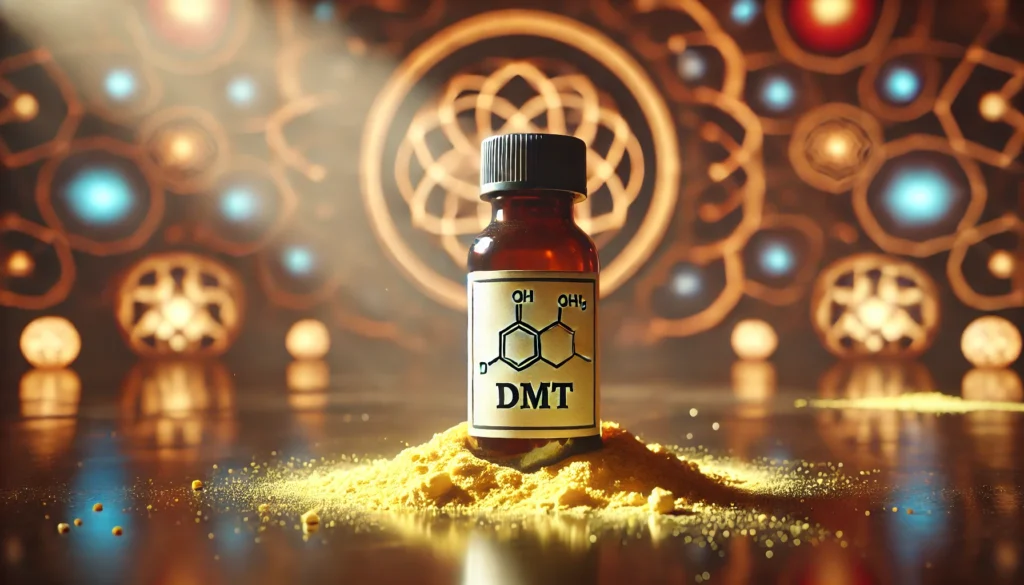Blog
DMT Policies in the USA: Legal Status, Decriminalization, and Future Outlook
Dimethyltryptamine (DMT) is one of the most powerful psychedelics known to science, yet its legal status in the United States remains complex. As interest in psychedelic therapy grows, laws surrounding DMT—whether in its natural form (e.g., ayahuasca) or synthetic—are evolving. This article explores:
Current legal status of DMT under federal and state laws
Religious exemptions for ayahuasca use
Decriminalization efforts and future legalization prospects
What these policies mean for researchers, therapists, and individuals
DMT’s Legal Status Under U.S. Federal Law
1. Schedule I Classification
The Controlled Substances Act (CSA) classifies DMT as a Schedule I drug, meaning it is considered to have:
No accepted medical use (despite emerging research)
High potential for abuse
Lack of accepted safety under medical supervision
Penalties: Possession, distribution, or manufacture can lead to severe fines and imprisonment.
2. Exceptions: Ayahuasca & Religious Use
While pure DMT is illegal, ayahuasca—a DMT-containing brew used in shamanic traditions—has limited legal protections:
Religious Freedom Restoration Act (RFRA) Cases:
União do Vegetal (UDV): A Supreme Court ruling (2006) allowed this Brazilian church to use ayahuasca sacramentally.
Santo Daime: Some branches have won legal exemptions for ceremonial use.
Limitations: These exemptions apply only to specific religious groups—personal or recreational use remains illegal.
State-Level Policies on DMT
While federal law prohibits DMT, some states and cities are adopting more lenient policies:
1. Decriminalization Efforts
Oregon:
Measure 109 (2020) legalized psilocybin therapy but did not include DMT.
However, Portland and other cities have decriminalized all entheogens (including ayahuasca) under local ordinances.
Colorado:
Proposition 122 (2022) decriminalized natural psychedelics (including DMT-containing plants) and paved the way for regulated healing centers.
California:
Cities like Oakland, Santa Cruz, and Arcata have decriminalized plant-based psychedelics, including ayahuasca.
2. Legal Gray Areas
“Analogues Act” Loophole: Some argue that plant-based DMT (e.g., in ayahuasca) is not explicitly banned, but enforcement varies.
Research Exemptions: FDA-approved studies (e.g., at Johns Hopkins) can legally use DMT under strict protocols.
Therapeutic Research & Future Legalization
1. Clinical Studies on DMT
Breakthrough Therapy Designation: The FDA has granted this status to some psychedelics (e.g., psilocybin), but not yet DMT.
Current Trials:
Small Pharma, Beckley Psytech, and others are testing DMT for depression and PTSD.
Short duration makes it appealing for therapy sessions compared to longer-acting psychedelics.
2. Will DMT Be Legalized?
Medical Pathway: If clinical trials succeed, DMT could follow MDMA and psilocybin toward FDA approval.
State-Level Reforms: More states may decriminalize or regulate natural psychedelics, including ayahuasca.
Federal Rescheduling: If the DEA reclassifies DMT (e.g., to Schedule II or III), it could open doors for prescription use.
Risks & Legal Consequences
Despite shifting attitudes, DMT remains highly illegal outside specific contexts:
Possession: Penalties vary by state but can include fines, probation, or jail time.
Manufacturing/Distribution: Federal charges can lead to decades in prison.
Ayahuasca Retreats: While some operate in the U.S., participants risk legal action unless part of a protected religious group.
How to Navigate DMT Laws Safely
Stay Informed: Track local decriminalization efforts (e.g., Decriminalize Nature campaigns).
Religious Use: If seeking ayahuasca, join a legally recognized church (e.g., UDV).
Clinical Trials: Participate in FDA-approved research for legal access.
Avoid Black Market: Unregulated DMT carries legal and safety risks.
Conclusion: A Changing Landscape
DMT’s legal status in the U.S. is at a crossroads. While federal prohibition remains strict, state-level reforms and scientific research are challenging old paradigms. As psychedelic therapy gains legitimacy, DMT could follow in the footsteps of cannabis and psilocybin toward regulated use.
Key Takeaways:
✅ DMT is federally illegal (Schedule I) but has religious exemptions.
✅ Some states/cities have decriminalized natural psychedelics, including ayahuasca.
✅ Research is expanding, potentially leading to medical legalization.
What’s Next? Advocacy, education, and responsible use will shape DMT’s future in America.
Disclaimer: This article does not constitute legal advice. Laws change frequently—consult an attorney for specific guidance.

